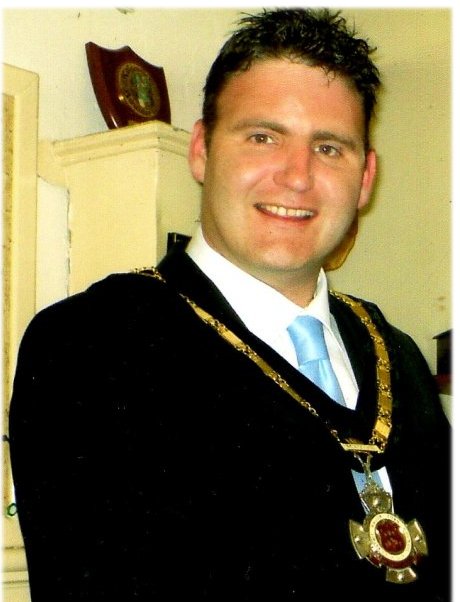An Historical Perspective On Today's Mayorallty

Before we Begin our jounury in my Year in Office, It is important to understand the Office of Mayor and for us also to understand how the office developed and the traditions that it bequeathed.
The word's 'Mayor' and 'Major' derive from the same Latin word 'Magnus' meaning great. The office of Mayor together with the Domesday Book and the feudal system were bought to this country by the Normans as such an office has existed on the continent since at least the fifth century.
The title of Mayor given to the head of the Corporation (Council) is comparatively speaking an innovation which was introduced by the Municipal Corporation Act 1835.
The Office of Mayor has changed dramatically over the Centuries as can be seen below:
Middle Ages
During this time, unlike today, the Mayor was always a "he" and under whatever name he was known in his particular Borough, he seems to have held a position similar in many ways to his modern successor.
Like today, the Mayor was acknowledged as the "first citizen" of the town, he had a Council (under differing names) to assist him, he was a 'Custodian of the Peace' - the name for early Magistrates, and he would normally preside in the Borough's civil and criminal courts.
Tudor Times
Historian William Lamarde's "stack of statutes" greatly increased the powers of the Mayor as Chief and sometimes Sole Magistrate. This made the Magistrate the Tudor "maids of all work" resulting in a great increase in their personal importance as these following examples of mayoral powers show:
a)
The power to arrest those disturbing the peace and persons carrying offensive weapons in fairs (2Ed.III c. 3);
b)
Power to regulate the size of loaves of bread and to seize bread of unlawful size and pillory the bakers responsible (5 Henry V c.6);
c)
Powers to search premises suspected of unlawful gaming (33 Henry VIII c. 9);
d)
The power to compel persons to go into service, and to deal with matters relating to servants and apprentices (5 Eliz. I c.4);
e)
The power to deal with dyers suspected of using logwood in dyeing (23 Eliz. I c. 9)
By the Seventeenth century, the Mayor had in many Boroughs become all powerful and in many instances his powers included:
a)
Chairman of the Council or other governing body of the town (e.g. the Alderman, Capital Burgesses, Masters, Approved Man, Portmen, or Brethren);
b)
Chief Magistrate often presiding at Quarter Sessions as well as Petty Sessions;
c)
President of the Civil and Manorial Courts of the Borough, sometimes sitting with the Recorder or the Town Clerk, and sometimes alone;
d)
Borough Coroner
e)
Clerk of the Borough Market(s);
f)
Keeper of the Borough Gaol;
g)
The appointment of most Borough Officers, including in some towns the Town Clerk and Chamberlain;
h)
The creation of Freeman, often for a fee; and
i)
Admiral of the Port - title retained today in several seacoast towns such as Southampton, Poole and Kingston-upon-Hull.
By the Eighteenth century, the position of Mayor in this country had become one of considerable power and the position was, and still is regarded as the pinnacle of achievement for service to the local community.
In 1835, the legal position of the Mayor was regulated by Parliament, who laid down a clear definition of the precise attributes of the modern Mayor thus restricting and regulating by statute the rights of the precedence of the Mayor.
By the nineteenth century, a Mayor could be the centre of all political activity with the terms of office lasting often two to four years. By attending a large number of committees, the Mayor could hold the whole Council together and co-ordinate and integrate its activities. The political role of the Mayor, rather than the social and ceremonial role, was clearly far more important in this era than it is today.
The Importance and Role of the Mayor Today
One can suggest three main important roles for the traditional Mayor in today's local authorities and society:
(i) As a symbol of the authority
The insignia of the mace, robes, chains of office etc is a clear symbol of the Mayor's Authority in that area. The Mayor, through the office of Mayor and its trappings, connects the present day with history and acts as a symbol of continuity.
Until 1974 the use of the term "Corporation" symbolised the fact that the people were considered part of the Council and this strengthened the symbolism of the Mayor being the First Citizen who spoke for the whole town or city and gave an identity.
(ii) As a symbol of open society
A modern role for the Mayor is that the office symbolises an open society. The choice of Mayor is no longer restricted and the First Citizen can (and does) come from any class gender or ethnic background. The First Citizen no longer is the privilege of the white middle/upper class male and the new diversity reflects the more open and democratic society we now live in.
(iii) As an expression of social cohesion
The Many, often social, engagements that are undertaken by a mayor are an expression of giving cohesion to the life of the city or town.
Conclusion
The history of the Mayoralty is important because it is one well-known and continuous factor in people's experiences. The power of the Mayor has undoubtedly reduced throughout the centuries and it is unlikely that today's Mayor will have the authority of, say, a fifteenth century Mayor or register some of the landmark achievements of great Victorian Mayors. The office, however, continues to have a central part to play in modern Councils and modern society and part of this role, as we have seen, is a result of the tradition it inherits.


0 Comments:
Post a Comment
<< Home